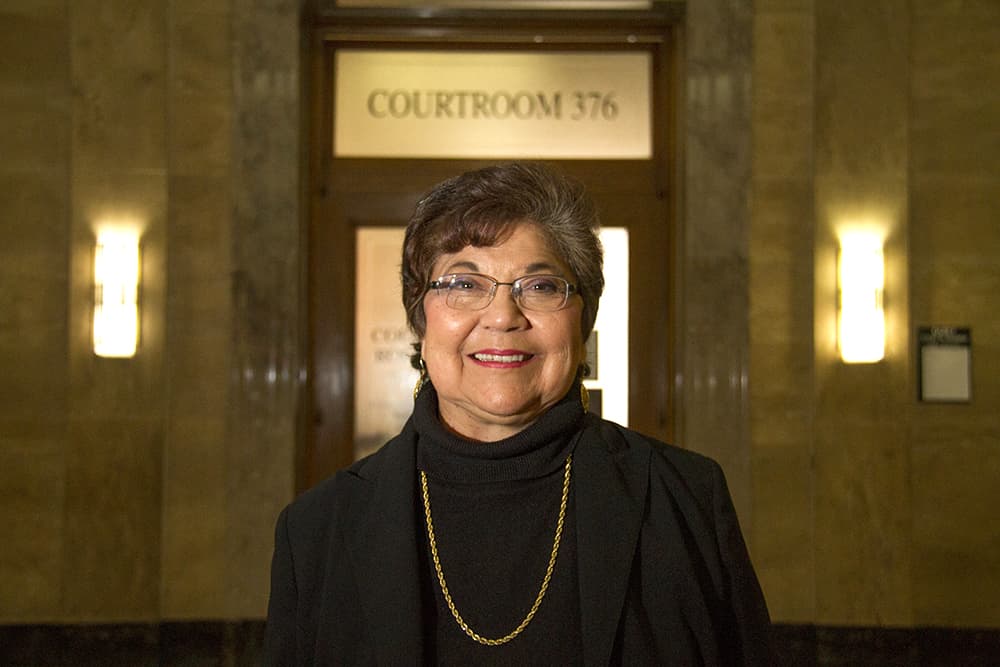On Tuesday, a Denver District Court judge told two Colorado presidential electors that if they don't vote for Hillary Clinton for president, they can be treated as if they've "refused to act" and can be replaced.
They've now appealed this ruling to the Colorado Supreme Court, one of two appeals efforts that former state senator Polly Baca and math teacher Robert Nemanich are making in an effort to ensure they can vote for someone other than Clinton when the electoral college convenes on Monday at high noon in the governor's office.
If they are unsuccessful, well, as their attorney said earlier this week, a crime just might be committed on Monday.

The arguments laid out by attorney Jesse Witt in the appeal are similar to those that were made in Denver District Court on Tuesday. He argues that Secretary of State Wayne Williams is misapplying the election code to the electors. Also, Witt says that by ruling that electors who vote for someone other than Clinton are "refusing to act," Judge Elizabeth Starrs essentially rewrote state law — something outside her purview as a member of the judiciary branch.
The electors, Witt wrote in the appeal, are bound by federal law, which has never really changed the original purpose of the electoral college to serve as a deliberative body.
"... the role of the Electoral College as a deliberative, investigatory body is implicit in the plain language of the Constitution itself. Under Article II § 1 cl. 2, the states must appoint individual electors who are free from potential conflicts; it provides that 'no Senator or Representative, or Person holding an Office of Trust or Profit under the United States, shall be appointed an Elector.' The Twelfth Amendment later established specific voting procedures to avoid deadlocked elections. ... All of this procedure would be mere surplusage if the electors were simply performing the ministerial task of transmitting state election results to Washington."
Witt also contends that state law itself doesn't support treating voting for the "wrong" candidate as a "refusal to act." Further, he doesn't think the district court had jurisdiction to issue an advisory ruling telling Williams what he could do about something that hasn't happened and might not.
This is pretty key to the act the electors may decide to perform on Monday. Or may not. Baca and Nemanich have been been coy this week.
If they're removed after voting for someone other than Clinton, basically their votes won't count and their long-shot effort to use the electoral college to deny Donald Trump the presidency won't work. If they're removed, someone else will be appointed who will vote for Clinton and the status quo will be maintained.
On the other hand, if they aren't removed and their votes do count -- even if they face the criminal penalties after the fact that Williams has threatened -- then they will have done their small part to create an opening for Republican electors to also cast votes that don't conform to the popular vote outcome in their states.
(Just a reminder of the plan here: Democratic electors will vote for someone other than Clinton, while Republican electors will vote for someone other than Trump. If 37 Republicans do this, Trump won't have enough votes and the election would go to the U.S. House of Representatives. So far, only one Republican has publicly stated he won't vote for Trump.)
"When the Electoral College convenes on Monday, it should be allowed to operate freely in performance of its federal duties, subject to such guidance as the federal courts may provide in the interim," Witt concludes. "If additional proceedings in the state courts become necessary at some later time, the parties may then seek relief under existing law. Until then, the state courts lack jurisdiction to enter injunctive or advisory relief against the Electors."
Williams, in contrast, has argued that state law is clear that electors must vote for the winner of the popular vote in the state, that electors who vote for someone other than Clinton are essentially disenfranchising the voters of Colorado and that the electors are performing an official function, not exercising their free will.
Williams has made several changes to make sure the electors vote for Clinton, such as changing the oath of office to include voting for the person who got the most votes and pre-writing Clinton's name on the forms the electors sign.
The electors have one other possible legal avenue. Earlier this week, they had sought their own injunction in federal court to stop Williams from compelling them to vote for Clinton. U.S. District Court Judge Wiley Daniel would not issue that injunction, which in turn allows Williams to enforce state law. That denial has been appealed to the 10th Circuit Court of Appeals, which has requested written arguments from all sides by Friday morning. It is not clear if the Court of Appeals will issue a ruling before Monday.











